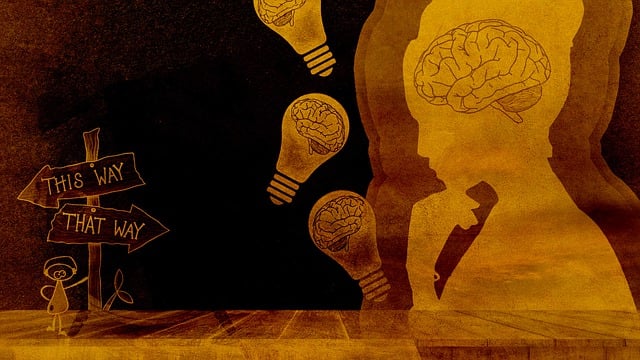Castle Rock Phobias Therapy: Understanding and Optimizing Trauma Support Services
Trauma from events like accidents or disasters can lead to lasting mental health issues including PT…….
Welcome to an in-depth exploration of a therapeutic approach that has garnered significant attention for its unique and effective methods: Castle Rock Phobias Therapy. This comprehensive article aims to guide readers through the intricacies of this specialized treatment, shedding light on its benefits, applications, and global impact. By delving into various aspects, from historical roots to future prospects, we will uncover why Castle Rock Phobias Therapy is a game-changer in the mental health landscape. Prepare to embark on a journey that promises to enhance understanding and inspire hope for those seeking healing.
Definition: Castle Rock Phobias Therapy, often simply referred to as “Castle Therapy,” is a revolutionary approach to treating specific types of phobias and anxiety disorders. It draws inspiration from ancient wisdom and modern psychological principles to help individuals overcome deep-rooted fears and emotional blocks. The term ‘Castle’ symbolizes the fortress-like mental barriers that these phobias create, and therapy aims to provide tools for dismantling these fortresses.
Core Components:
Historical Context: While modern psychology has embraced Castle Rock Phobias Therapy in recent years, its roots can be traced back centuries. Ancient philosophies, such as yoga and meditation practices from India, have long emphasized mindfulness and visualization for mental well-being. Early psychologists like Sigmund Freud also explored exposure therapy, forming the basis for modern anxiety treatments. The integration of these ancient wisdoms with contemporary psychological theories has given birth to the innovative Castle Therapy approach.
Castle Rock Phobias Therapy has transcended geographical boundaries, captivating mental health professionals and individuals worldwide. Its popularity can be attributed to several factors:
Trends Shaping the Future:
| Trend | Impact |
|—|—|
| Integrative Mental Health | A growing trend towards combining traditional Western psychology with ancient wisdom, complementary therapies, and mind-body practices, including Castle Rock Phobias Therapy. |
| Telehealth Expansion | The rise of telehealth ensures that remote communities and individuals with limited mobility can access specialized therapy services. |
| Personalized Treatment | Customizing therapy plans to meet individual needs is gaining traction. Castle Therapy’s flexibility allows for personalized approaches, enhancing its appeal. |
| Virtual Reality Integration | VR technology offers immersive experiences, making exposure therapy more engaging and effective. This trend promises to revolutionize anxiety treatment. |
The economic implications of Castle Rock Phobias Therapy are significant, both from a healthcare system perspective and individual financial viewpoints.
Technology has been a driving force behind the evolution of Castle Rock Phobias Therapy, enhancing its accessibility, effectiveness, and flexibility.
The legal framework surrounding Castle Rock Phobias Therapy varies across regions, impacting its availability and practice.
Despite its many successes, Castle Rock Phobias Therapy faces certain challenges and criticisms that require thoughtful consideration and strategic solutions.
Strategic Solutions:
Case Study 1: Overcoming Social Anxiety
Sarah, a young professional, struggled with severe social anxiety, which hindered her career and personal life. She sought Castle Rock Phobias Therapy and worked closely with a certified therapist.
Case Study 2: Conquering Arachnophobia
Mark, a spider phobia sufferer for over two decades, decided to try Castle Rock Phobias Therapy after years of avoiding certain situations.
The future of Castle Rock Phobias Therapy promises exciting possibilities as technology, research, and cultural awareness continue to shape its trajectory.
Castle Rock Phobias Therapy has emerged as a powerful tool in the mental health arsenal, offering hope and healing to individuals struggling with specific phobias and anxiety disorders. Its global impact, backed by clinical evidence and personal success stories, is undeniable. As technology advances and cultural awareness grows, this therapeutic approach will undoubtedly continue to evolve, benefiting even more people worldwide.
Q1: How does Castle Rock Phobias Therapy differ from traditional cognitive-behavioral therapy (CBT)?
A: While CBT is an effective treatment for various anxiety disorders, Castle Therapy offers a unique approach by combining ancient mindfulness practices with modern cognitive restructuring. It focuses on dismantling the mental fortress created by phobias, providing a more holistic experience.
Q2: Is this therapy suitable for all ages?
A: Yes, Castle Rock Phobias Therapy can be adapted to suit individuals of various ages, including children and adolescents. Therapists use age-appropriate techniques and tools to ensure a comfortable and effective treatment experience.
Q3: Can I practice mindfulness meditation on my own before or between therapy sessions?
A: Absolutely! Mindfulness is a fundamental aspect of Castle Therapy, and practicing it independently can enhance your therapeutic journey. There are numerous apps and online resources available to guide your meditation practice at home.
Q4: How long does treatment typically last?
A: Treatment duration varies depending on the severity of the phobia and individual progress. Some mild phobias may be resolved in a few weeks, while more complex cases could require several months of regular sessions. Many individuals experience significant improvements within 10-15 sessions.
Q5: Is there scientific evidence supporting Castle Rock Phobias Therapy?
A: Yes, extensive research supports the effectiveness of this therapy. Numerous studies have shown its success in treating specific phobias, social anxiety, and panic disorders. The growing body of evidence strengthens the case for its integration into mainstream mental health practices.

Trauma from events like accidents or disasters can lead to lasting mental health issues including PT…….